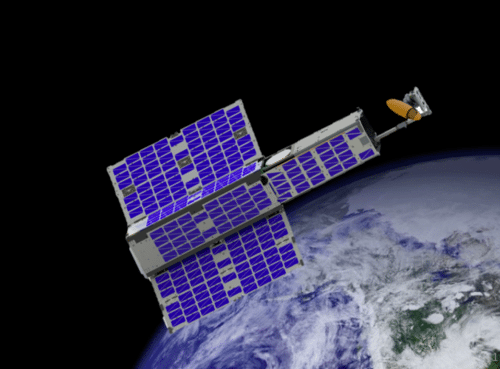Latest News

Artist rendition of Orbital Micro Systems Microwave Sensor Satellite. Photo: Orbital Micro Systems
Orbital Micro Systems (OMS) opened the International Center for Earth Data (ICED) at the University of Edinburgh in Scotland. A collaborative project between OMS, the University of Edinburgh, and the University of Colorado at Boulder, ICED is a commercial platform that leverages the latest in data science and cloud services to gather, integrate, and disseminate Earth Observation (EO) data. The data generated from ICED will result in weather and environmental information that aims to empower governments, businesses, and consumers to make timely decisions that increase safety and ensure economic viability.
ICED subscribers will have access to timely information from OMS’ Low-Earth Orbit (LEO) satellite technology that utilizes passive microwave radiometry to penetrate storms and deliver a comprehensive view of weather and environmental conditions. The processing and alignment of datasets from the OMS Global Environmental Monitoring System (GEMS) satellites and multiple public and private sources aims to facilitate more accurate weather insights in underserved areas of the world that may not have the resources to process raw data into local models necessary for appropriate forecasting and planning.
“ICED is the result of a collaboration among the best and brightest minds in data science, machine learning, artificial intelligence, and satellite technology, working synergistically to create a platform that will deliver unprecedented quality, quantity, and frequency of Earth Observation data,” explained William Hosack, chief executive officer of OMS. “ICED fills a void in multiple markets that require immediate visibility into weather and other environmental factors that can impact business performance and emergency preparedness. We believe the information derived from ICED will have a profound impact on the safety, security, and prosperity of stakeholders worldwide in a multitude of sectors, such as aviation, maritime, insurance, agriculture, and civil preparedness.”
Get the latest Via Satellite news!
Subscribe Now